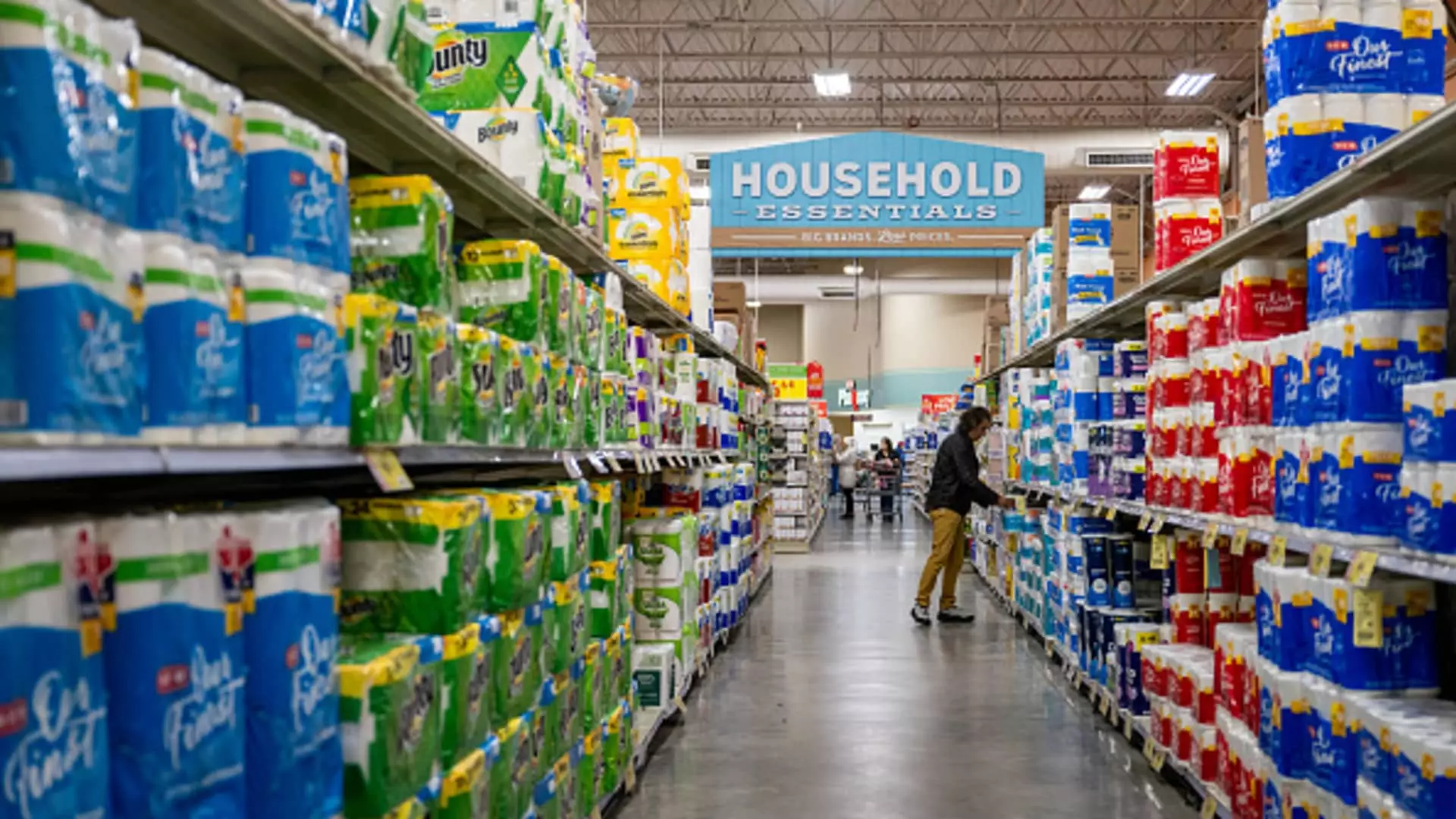As the Trump administration moves forward with new tariffs affecting over 180 countries, consumers across the United States stand on the precipice of a financial shift that many seem uninformed about. Tariff implementation may appear as a mere economic strategy aimed at reviving American manufacturing jobs, but the reality is that it could hit the average shopper right in the wallet. Everyday essentials, from coffee to toilet paper, are set to become more expensive. This surge in pricing raises important questions about the effectiveness of protectionist policies and their unintended consequences.
A Misguided Approach to American Manufacturing
The intention behind the “America First Trade Policy” is ostensibly noble—bringing jobs back to U.S. soil. However, are we truly considering the complexities of the global supply chain? As the Consumer Brands Association (CBA) articulates through its representatives, certain vital materials simply cannot be sourced domestically. For instance, the soaring tariffs on coffee, bananas, and spices expose a contradiction: how can we claim to nurture national industries while simultaneously imposing barriers on essential imports? The CBA’s Tom Madrecki succinctly stated that reciprocal tariffs devoid of nuanced considerations are a recipe for disaster, potentially harming American companies that are already upholding domestic standards while relying on overseas production for critical ingredients.
Climate Constraints and Agricultural Faux Pas
The realities of climate control play an immeasurable role in this discussion. U.S. agriculture cannot feasibly produce certain goods in sufficient quantities due to geographical and climate limitations. For example, the United States is the leading importer of bananas, with almost 40% of those originating from Guatemala. Imposing a tariff on these imports only serves to heighten consumer prices while doing little to bolster local agriculture, which, truth be told, lacks the capability to turn such imports into viable domestic production. The U.S. simply does not have the climate to support coffee or cocoa cultivation on a scale that would meet national demand. It is critical that we recognize these environmental limitations rather than allowing political rhetoric to dictate economic policies.
The Quicksand of Consumer Economics
Rising costs of everyday household items are not confined to food products. As tariffs increase prices on key materials like wood pulp and palm oil, staple items such as toilet paper and shampoos will also become less affordable. The troubling reality is that these surging costs often go passed directly to consumers, further straining household budgets. Increasing tariffs as a mechanism of economic patriotism can inadvertently swell the financial burdens placed upon ordinary citizens. As companies search for ways to maintain margins in the face of rising costs, it is the consumer who will ultimately feel the pinch.
The Risky Game of Economic Speculation
Market reactions to tariff announcements have displayed volatility, leaving investors scrambling for safety in sectors like consumer staples. Following the announcement, shares of Coca-Cola and Procter & Gamble witnessed modest gains, as investors prioritized lower-risk stocks over speculative ventures. This behavior reveals a telling dynamic: when the economy tightens due to misguided policy, investors will flock to known entities, which could forewarn a more significant trend of market instability. The more volatile the political landscape becomes, the less willing investors may be to gamble on emerging markets or ideas.
Consumer Brands at a Crossroads
The looming threat of increased costs has led companies like McCormick to adjust their strategies, announcing plans for targeted price adjustments and cost-cutting measures. But how long can such adjustments go on before they no longer suffice? Frequent price hikes could alienate consumers who are already grappling with inflationary pressure across various sectors. If corporations must continuously adapt to protect their margins, the potential for a cascading cycle of price increases becomes dangerously plausible. What happens when the pulse of the consumer economy falters under weighty tariffs designed to “protect” it?
A Call for Thoughtful Economic Policy
The challenges posed by the current tariff situation remind us that economic policy needs to be much more nuanced than simple slogans and emotional appeals. Center-wing liberalism posits that for policies to be effective, they must also consider the wider array of impacts on both consumers and producers. A rigorous examination of how these tariffs will shape food prices and essential goods is necessary. Ignoring these complexities may not just harm everyday consumers but could have far-reaching impacts on the fabric of the American economy itself. Without a more comprehensive strategy, designed to embrace both domestic manufacturing and sensible international trade, we risk sealing our fate in a self-made economic crisis.

